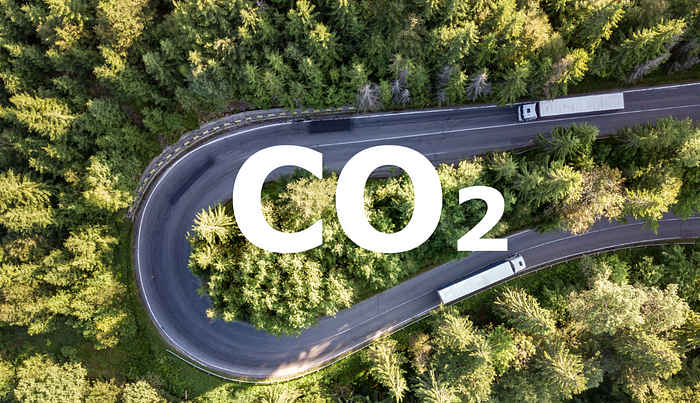CO₂ emissions in Logistics — a real deal or just a clickbait?
How much CO₂ is emitted when I ask a logistics company to transport one pallet of goods from Tallinn to Düsseldorf?
Just a few months ago I didn’t have a clue. I couldn’t even guess whether it would be measured in grams or kilograms. Yet I have been in the logistics sector for more than 15 years by now. Sure, I had heard statements like “lowering CO₂ emissions is important” and “we are running CO₂ reports monthly and monitoring the results”. And in most cases I do believe it is the truth. I truly believe that somewhere in the end of a corridor there is a guy who actually puts those reports together and someone really does check those reports from time to time. But still, Average Joe couldn’t even give an approximate answer to the question I quoted in the beginning of this paragraph. Just like me.
I checked it out. The approximate figure is 100 kg of CO₂. Via road. Via air it would be approximately 12 times more. You’re welcome!
The point remains though. If I don’t even know the approximate figure, how can I make better choices? Can I even change anything? And most importantly, do we actually care as much as we claim to care? Without irony, we should do more. I should do more.

How it all began
Cargoson is a software-as-a-service Logistics Dashboard aimed to companies who are regularly working with more than one logistics partner. The account owner can pick their logistics providers, upload price lists, compare prices, compare transit times, book shipments, monitor shipment progress, pull reports … and so forth. I believe you got the point.
It was just another business meeting with a new potential customer. During the meeting, out of nowhere the customer asked if we could calculate CO₂ emissions as well. Trained sales-operative as I am, the prompt answer was “Yes, we can”. Not to sound too hollow, I added that we do actually have an MVP ready, and I can even run a demo, but let’s do it in another meeting. Naturally, the customer was interested, and I had 1 week to figure out how to make it happen. I mean, how hard can it be?
A week later, we had a prototype ready. Very basic. It did not consider different modes of transport, did not consider the size or age of the vehicles but it wasn’t fake either. It did exactly what an MVP should do — the absolute minimum needed to calculate CO₂ emissions of transporting goods.
Along the way we got more and more requests on the same topic, and we made more demos. Until my colleague suddenly asked me: “Hey, do you know by heart how much is the CO₂ emission for 1 pallet from Tallinn to Düsseldorf?”.
And then it hit us. We had taken off in the wrong direction.
We were playing around with past data. But when suddenly someone asked for an approximate estimate, I had no idea. More importantly, if I was a logistics specialist, just a generic CO₂ emissions prediction wouldn’t cut it.
I would need to predict the CO₂ emissions for different freight types and different logistics companies before I book the shipment. Not just after. The same way I can compare prices and transit times.
The CO₂ tool in action
And there we have it. Whenever our customer fills in their shipment data, we instantly calculate three things:
- Estimated cost of shipment for each transport service
- Estimated transit time for each transport service
- Estimated CO₂ emission for each transport service

Summary
So, a bit unexpectedly, we have set ourselves on a new quest. But I guess we truly are helping people make better transport choices. It is true that often the logistics terms are predefined and the logistics specialist can only work with a previously agreed carrier, but there are those other times when goods just need to be shipped out and the decision is left to the logistics specialists.
We have always looked ways to help people make better transport decisions. And giving them another tool in the form of a pre-calculated CO₂ estimate hits the mark perfectly!

Want to learn more about our algorithms? Please check here.
We love feedback! Please feel free to leave us a comment.
